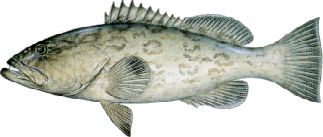 This morning the National Oceanic and Atmospheric Administration (NOAA) made one of the most significant decisions in the name of saving Gulf of Mexico fisheries, fishermen, and coastal fishing communities by approving a multi-species individual fishing quota (IFQ) program for Gulf of Mexico grouper and tilefish. The program will be implemented in January, creating one of the largest multi-species IFQ programs in federal waters of the continental U.S.
This morning the National Oceanic and Atmospheric Administration (NOAA) made one of the most significant decisions in the name of saving Gulf of Mexico fisheries, fishermen, and coastal fishing communities by approving a multi-species individual fishing quota (IFQ) program for Gulf of Mexico grouper and tilefish. The program will be implemented in January, creating one of the largest multi-species IFQ programs in federal waters of the continental U.S.
The grouper/tilefish IFQ will build on the successful record of the red snapper IFQ, which has already significantly contributed to the recovery of the stressed red snapper species. Together, the programs will offer even more conservation benefits than either program alone.
Fishermen are ecstatic and so are we. It has been a long process, but with support from fishermen (who voted in favor of the IFQ by more than 80%), managers (the Gulf of Mexico Fishery Management Council voted in favor of the IFQ by more than 75%) and environmentalists, NOAA is implementing a strong conservation program that is welcomed by many.










2 Comments
Why is “commerical” left out of this.The Rec fisherman are not for IFQ’s!!! 100% AGAINST!!!! It is the Commerical fishery that is for IFQ’s. You helped sell a public resource to private industry. If you only new the corruption involved. Most fish houses own Grouper and Tilefish boats. They come in with fish and most of the time they are never counted. Stay out of the fishery business. You are causing more damage to the fishery than was before.
Increasing fish populations is good for all fishermen, commercial and recreational.
IFQs have shown proven success in the Gulf for commercial red snapper at reversing overfishing and keeping much better track of the fish that are caught, which is improving red snapper stocks. We expect similar benefits in the commercial grouper and tilefish fishery once the IFQ is implemented.
Check out a summary of the National Marine Fisheries Services’ latest report on red snapper IFQ conservation benefits: http://blogs.edf.org/edfish/2009/08/21/new-red-snapper-ifq-report/.
Additionally, catch shares (an IFQ is one type of catch share) are supported by many recreational fishermen throughout the Gulf. Check out this recent piece in the Destin Log: http://www.thedestinlog.com/news/hook-11147-don-pam.html.